- Government of Montenegro
Ministry of Education, Science and Innovation Minister of Science takes part in the Ministerial ...
Please note: The page below represents the archived content relating to the previous Government of Montenegro. Some of the information might be inaccurate or outdated.
Archive
Minister of Science takes part in the Ministerial Meeting of the Western Balkans Steering Platform on Research and Innovation
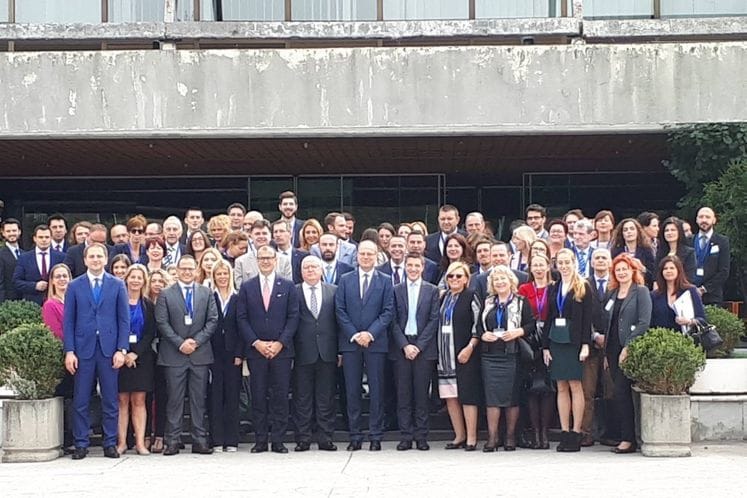
Published on: Oct 2, 2017 • 2:54 PM Author: Ministarstvo nauke
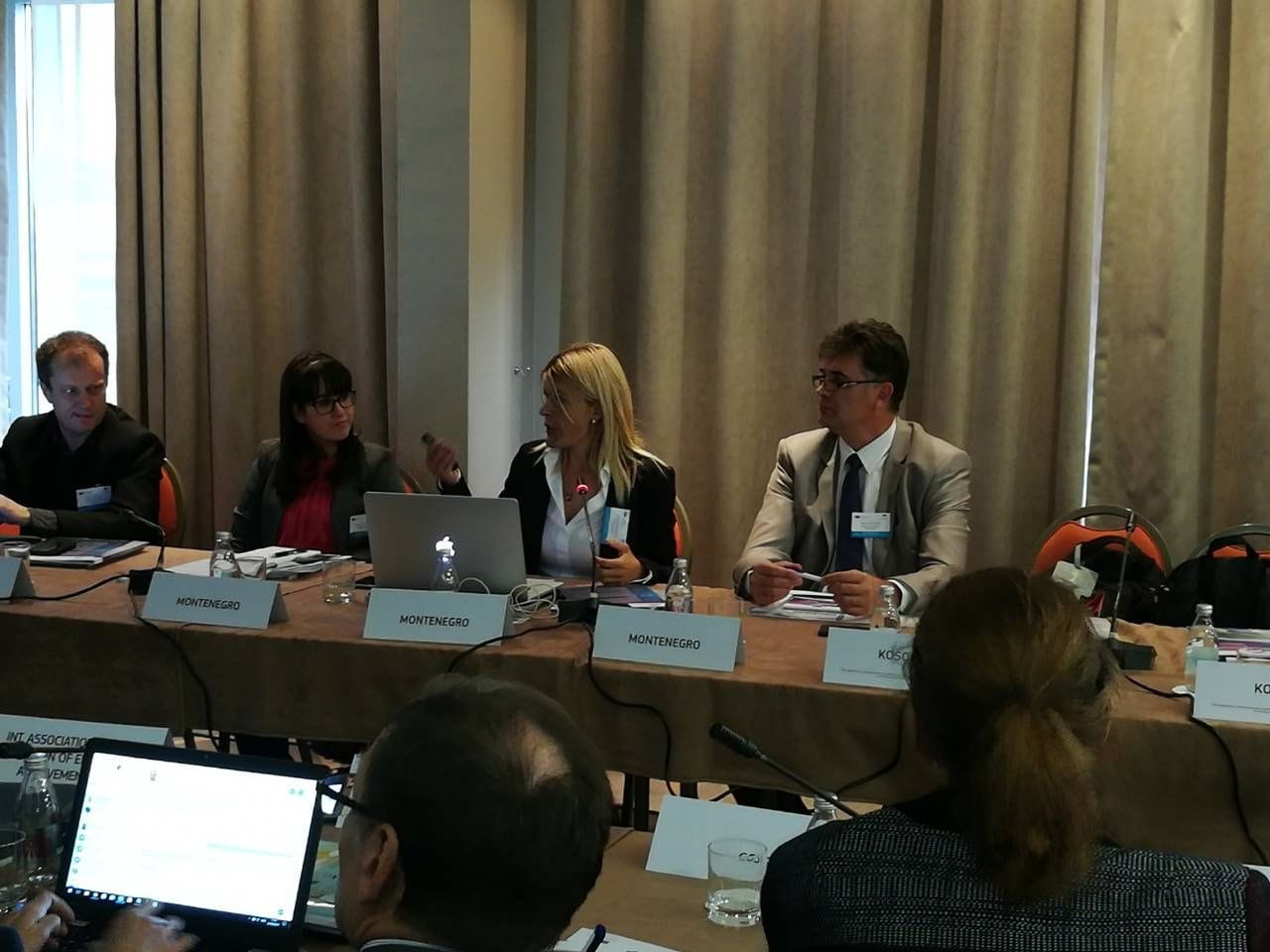
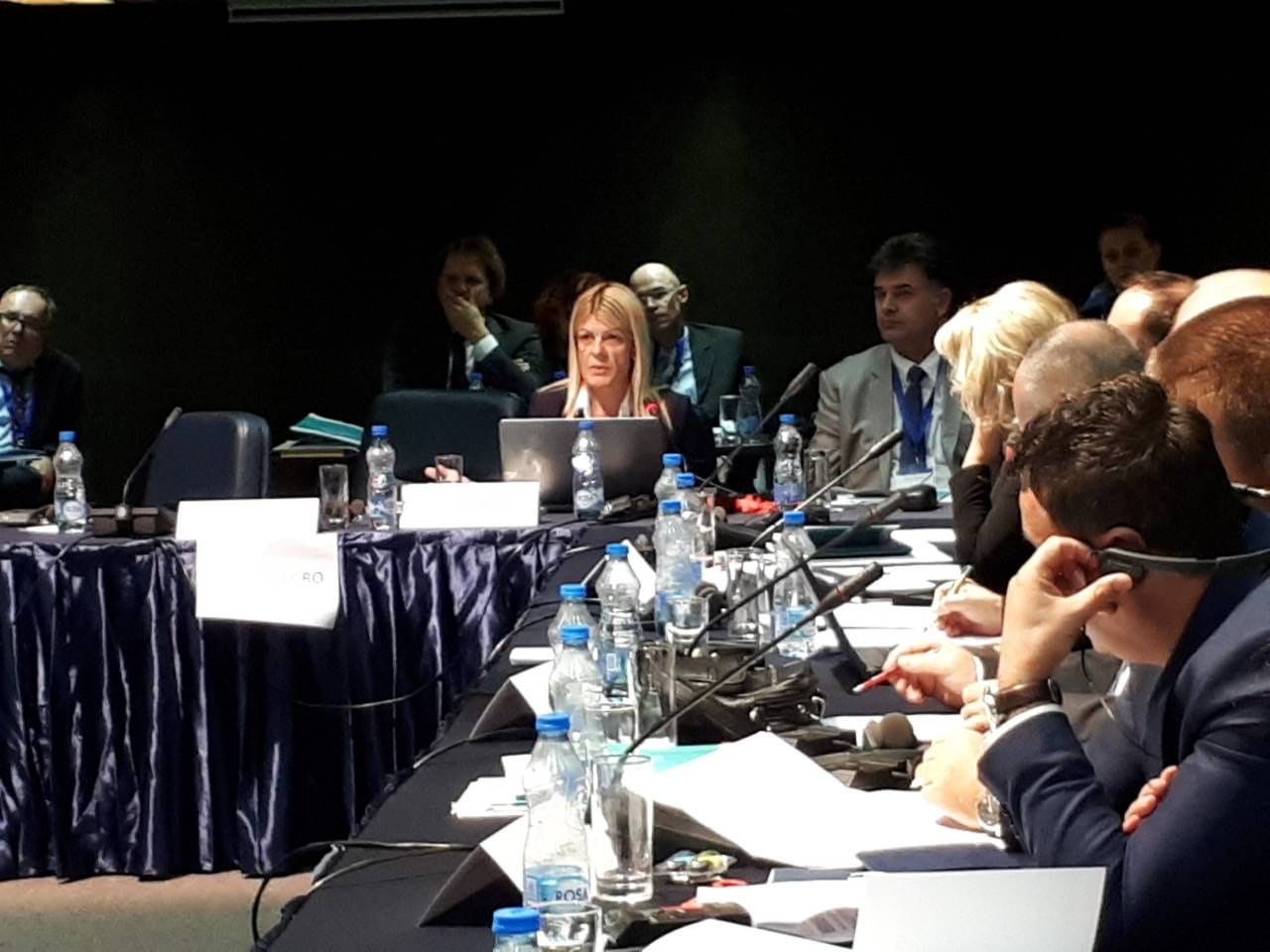
At the invitation of the European Commission – Directorate-General for Research and Innovation, Minister of Science of Montenegro Dr. Sanja Damjanović took part in the Ministerial Meeting of the Western Balkans Steering Platform on Research and Innovation, held in Belgrade on 27–29 September 2017.
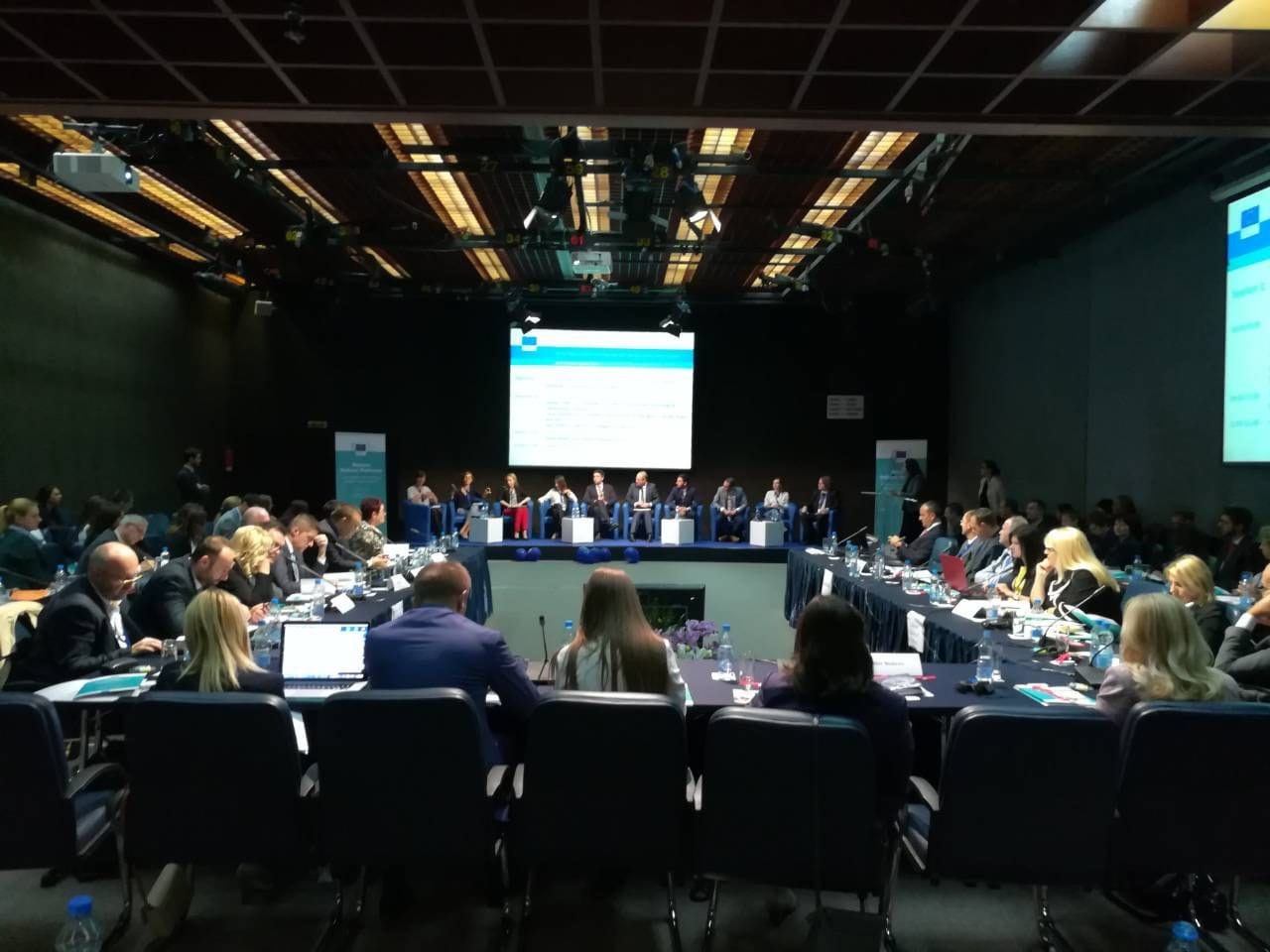 The importance of the Steering Platform is reflected in providing quality guidelines to the countries of the Western Balkans in order to advance in the European Research Area – ERA. In addition, the Platform acts as a focal point for the coordination of countries on the EU Framework Programme for Research and Innovation – Horizon 2020, monitors the progress of regional strategies in the field of science and assists the exchange of best practices between the EU and the Western Balkan countries.
The importance of the Steering Platform is reflected in providing quality guidelines to the countries of the Western Balkans in order to advance in the European Research Area – ERA. In addition, the Platform acts as a focal point for the coordination of countries on the EU Framework Programme for Research and Innovation – Horizon 2020, monitors the progress of regional strategies in the field of science and assists the exchange of best practices between the EU and the Western Balkan countries.
On 27 September, the first day of its participation, the Montenegrin delegation presented progress in the field of research and innovation for the period from June 2016 to June 2017, during which it particularly focused on: activities on the preparation of strategic documents – Strategy of Scientific Research Activity (2018–2021) and the Smart Specialization Strategy (2018–2022); the Initiative for the Establishment of an International Scientific Institute for Sustainable Technologies in South East Europe; promotion of participation in Horizon 2020; a new internationalization programme – association with large infrastructures (CERN, EMBL, EMBO, ESA, GSI-FAIR); and initial activities on the establishment of the central unit of the Science and Technology Park in Podgorica.
In addition, Minister Damjanović had a separate presentation on the same day, within the framework of the session entitled Development of Regional Centres of Excellence and Infrastructure – Improvement of Cooperation between Science and Economy, during which she familiarized the participants of the meeting with the Initiative for the Establishment of an International Scientific Institute for Sustainable Technologies in South East Europe and the future steps to implement it.
During the presentation, the Minister of Science highlighted the benefits of establishing the Institute for sustainable technologies in South East Europe, which would be a major milestone for the economy of the countries of the region. The Initiative for the Establishment of an International Scientific Institute for Sustainable Technologies in South East Europe represents a unique opportunity to unite the scientific and research community of the region, which would result in increased competitiveness in applying for EU grants.
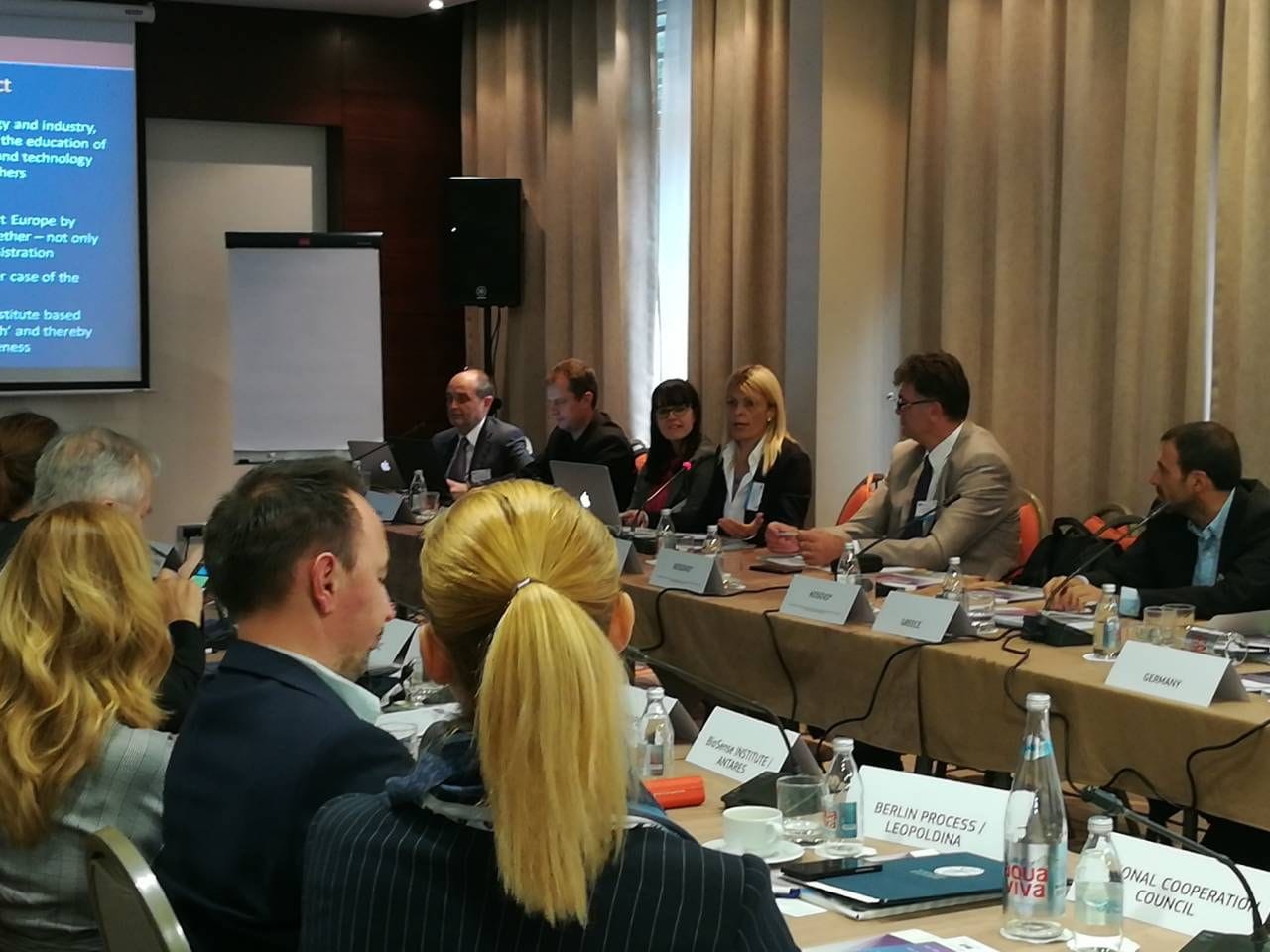
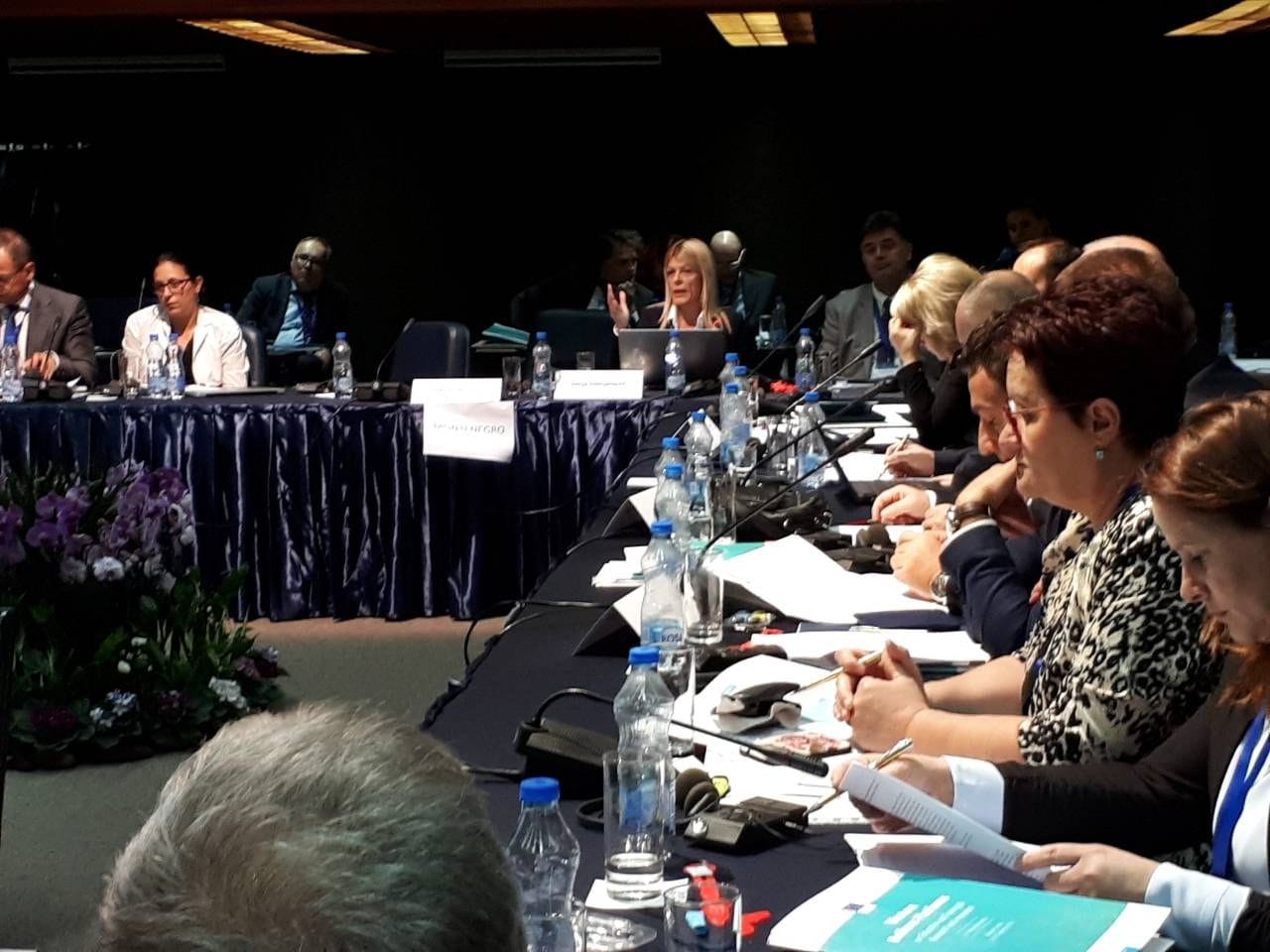
 The importance of the Steering Platform is reflected in providing quality guidelines to the countries of the Western Balkans in order to advance in the European Research Area – ERA. In addition, the Platform acts as a focal point for the coordination of countries on the EU Framework Programme for Research and Innovation – Horizon 2020, monitors the progress of regional strategies in the field of science and assists the exchange of best practices between the EU and the Western Balkan countries.
The importance of the Steering Platform is reflected in providing quality guidelines to the countries of the Western Balkans in order to advance in the European Research Area – ERA. In addition, the Platform acts as a focal point for the coordination of countries on the EU Framework Programme for Research and Innovation – Horizon 2020, monitors the progress of regional strategies in the field of science and assists the exchange of best practices between the EU and the Western Balkan countries. On 27 September, the first day of its participation, the Montenegrin delegation presented progress in the field of research and innovation for the period from June 2016 to June 2017, during which it particularly focused on: activities on the preparation of strategic documents – Strategy of Scientific Research Activity (2018–2021) and the Smart Specialization Strategy (2018–2022); the Initiative for the Establishment of an International Scientific Institute for Sustainable Technologies in South East Europe; promotion of participation in Horizon 2020; a new internationalization programme – association with large infrastructures (CERN, EMBL, EMBO, ESA, GSI-FAIR); and initial activities on the establishment of the central unit of the Science and Technology Park in Podgorica.
In addition, Minister Damjanović had a separate presentation on the same day, within the framework of the session entitled Development of Regional Centres of Excellence and Infrastructure – Improvement of Cooperation between Science and Economy, during which she familiarized the participants of the meeting with the Initiative for the Establishment of an International Scientific Institute for Sustainable Technologies in South East Europe and the future steps to implement it.
During the presentation, the Minister of Science highlighted the benefits of establishing the Institute for sustainable technologies in South East Europe, which would be a major milestone for the economy of the countries of the region. The Initiative for the Establishment of an International Scientific Institute for Sustainable Technologies in South East Europe represents a unique opportunity to unite the scientific and research community of the region, which would result in increased competitiveness in applying for EU grants.


Minister Damjanović introduced the meeting participants to the current activities on the preparation of the 'Concept Studies' for two options of the Institute: 'Synchrotron Light Source', which enables research in various fields such as biology, chemistry, pharmacology, ecology, geology and engineering, with wide application in various branches of industry; and Hadron's Cancer Therapy and Research in Biomedicine.
Regional ministers noted that the weaknesses of scientific and innovation systems in the countries of the region, previously presented by Lisa Cowey, as part of the presentation of the preliminary results of the Research Capacities in the Western Balkans study, could be removed by the implementation of such a regional project. Damjanović also presented the future steps necessary to transform the Initiative into a regional project. The formal signing of the Declaration of Intent expressing the consent of the countries for the Initiative for the Establishment of an International Scientific Institute, which is scheduled for late October this year at the Ministerial Conference in CERN, is the first step in that direction.
The most important topics of the Ministerial Meeting held on 28–29 September, organized in close cooperation with the Western Balkans Platform on Education and Training, are related to strengthening research and innovation capacity in the Western Balkan countries and increasing the region’s participation in Horizon 2020. Cristina Russo, Director in the European Commission’s Directorate-General for Research and Innovation informed the participants that the EC has set aside about EUR 30 billion for calls within H2020, whose announcement is expected in late October this year.
Minister Damjanović addressed the participants within the panel entitled Research Capacities in the Western Balkans. She presented the activities undertaken with a view to increase the participation of Montenegro in Horizon 2020, primarily the reorganization of the system of national contact persons (NCPs) and representatives in H2020 programme committees, with a focus on the active and timely action of the NCP and the necessity of creating good networks and partnerships in H2020. In this context, she particularly recognized the importance of adopting the Work Programme for the next three-year period in the area of Spreading Excellence and Widening Participation in H2020 and the support of the European Commission to the countries of the region.
The meeting participants also had the opportunity to get acquainted with the H2020 ANTARES project of the Novi Sad Institute “BioSens”, aimed at creating European centres of excellence in scientific research.
Minister Damjanović took the opportunity to thank the European Commission for the possibility of using the Policy Support Facility.
Regional ministers noted that the weaknesses of scientific and innovation systems in the countries of the region, previously presented by Lisa Cowey, as part of the presentation of the preliminary results of the Research Capacities in the Western Balkans study, could be removed by the implementation of such a regional project. Damjanović also presented the future steps necessary to transform the Initiative into a regional project. The formal signing of the Declaration of Intent expressing the consent of the countries for the Initiative for the Establishment of an International Scientific Institute, which is scheduled for late October this year at the Ministerial Conference in CERN, is the first step in that direction.
The most important topics of the Ministerial Meeting held on 28–29 September, organized in close cooperation with the Western Balkans Platform on Education and Training, are related to strengthening research and innovation capacity in the Western Balkan countries and increasing the region’s participation in Horizon 2020. Cristina Russo, Director in the European Commission’s Directorate-General for Research and Innovation informed the participants that the EC has set aside about EUR 30 billion for calls within H2020, whose announcement is expected in late October this year.
Minister Damjanović addressed the participants within the panel entitled Research Capacities in the Western Balkans. She presented the activities undertaken with a view to increase the participation of Montenegro in Horizon 2020, primarily the reorganization of the system of national contact persons (NCPs) and representatives in H2020 programme committees, with a focus on the active and timely action of the NCP and the necessity of creating good networks and partnerships in H2020. In this context, she particularly recognized the importance of adopting the Work Programme for the next three-year period in the area of Spreading Excellence and Widening Participation in H2020 and the support of the European Commission to the countries of the region.
The meeting participants also had the opportunity to get acquainted with the H2020 ANTARES project of the Novi Sad Institute “BioSens”, aimed at creating European centres of excellence in scientific research.
Minister Damjanović took the opportunity to thank the European Commission for the possibility of using the Policy Support Facility.
Related articles:
Request for prequalification Jan 17, 2025
Is this page useful?
